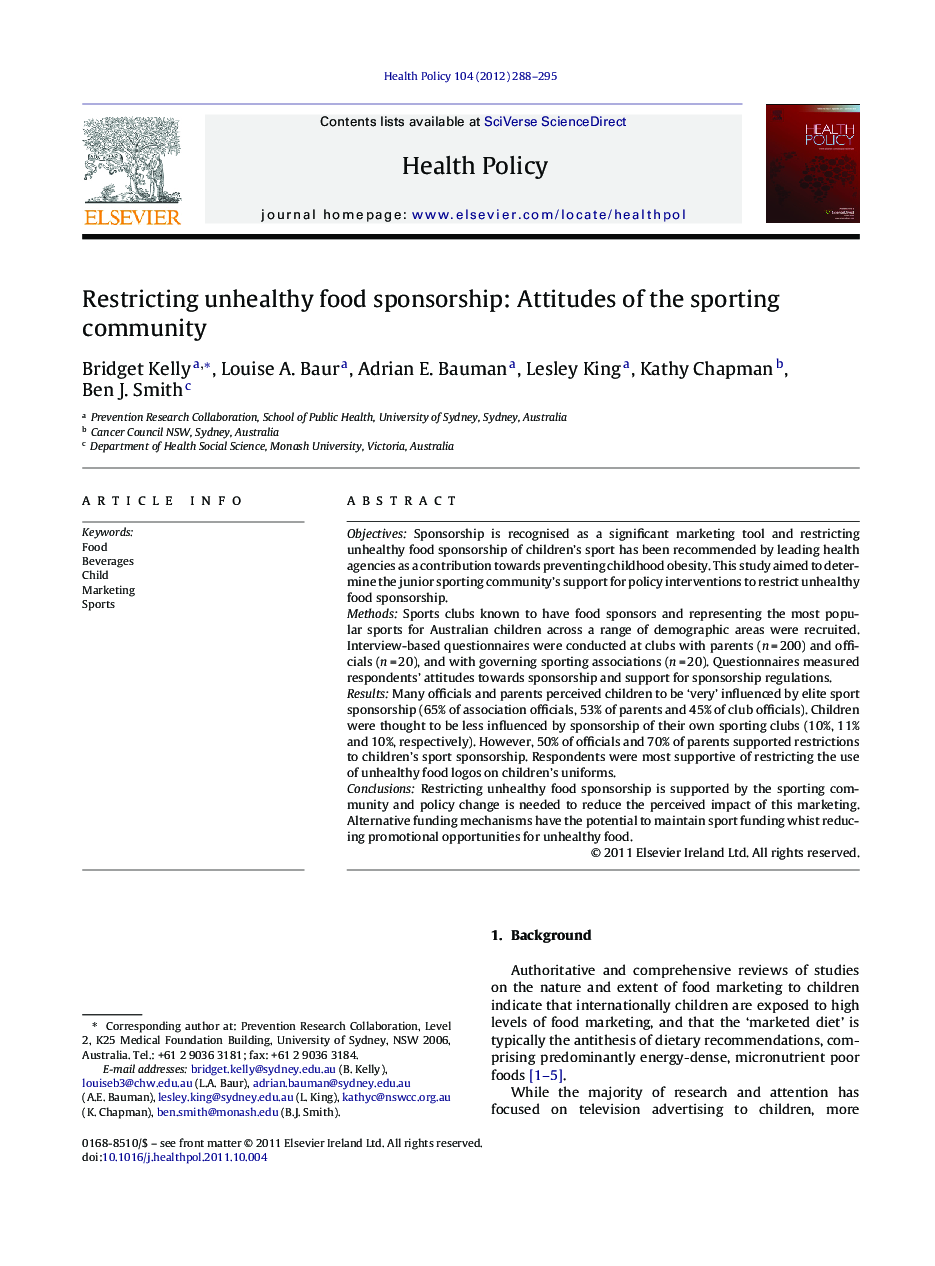| Article ID | Journal | Published Year | Pages | File Type |
|---|---|---|---|---|
| 4197989 | Health Policy | 2012 | 8 Pages |
ObjectivesSponsorship is recognised as a significant marketing tool and restricting unhealthy food sponsorship of children's sport has been recommended by leading health agencies as a contribution towards preventing childhood obesity. This study aimed to determine the junior sporting community's support for policy interventions to restrict unhealthy food sponsorship.MethodsSports clubs known to have food sponsors and representing the most popular sports for Australian children across a range of demographic areas were recruited. Interview-based questionnaires were conducted at clubs with parents (n = 200) and officials (n = 20), and with governing sporting associations (n = 20). Questionnaires measured respondents’ attitudes towards sponsorship and support for sponsorship regulations.ResultsMany officials and parents perceived children to be ‘very’ influenced by elite sport sponsorship (65% of association officials, 53% of parents and 45% of club officials). Children were thought to be less influenced by sponsorship of their own sporting clubs (10%, 11% and 10%, respectively). However, 50% of officials and 70% of parents supported restrictions to children's sport sponsorship. Respondents were most supportive of restricting the use of unhealthy food logos on children's uniforms.ConclusionsRestricting unhealthy food sponsorship is supported by the sporting community and policy change is needed to reduce the perceived impact of this marketing. Alternative funding mechanisms have the potential to maintain sport funding whist reducing promotional opportunities for unhealthy food.
